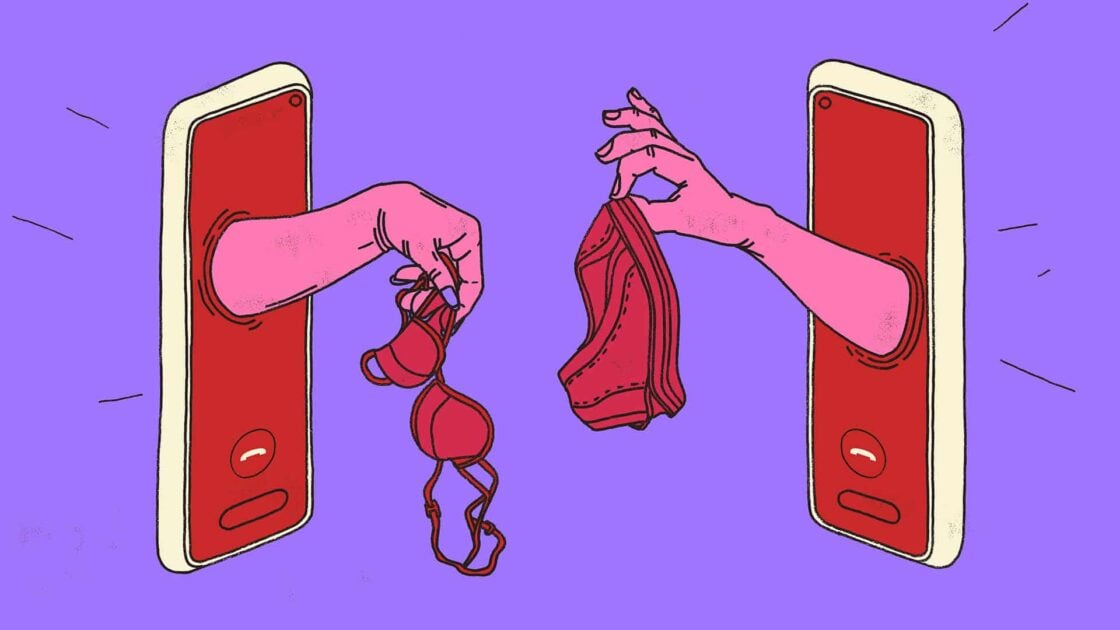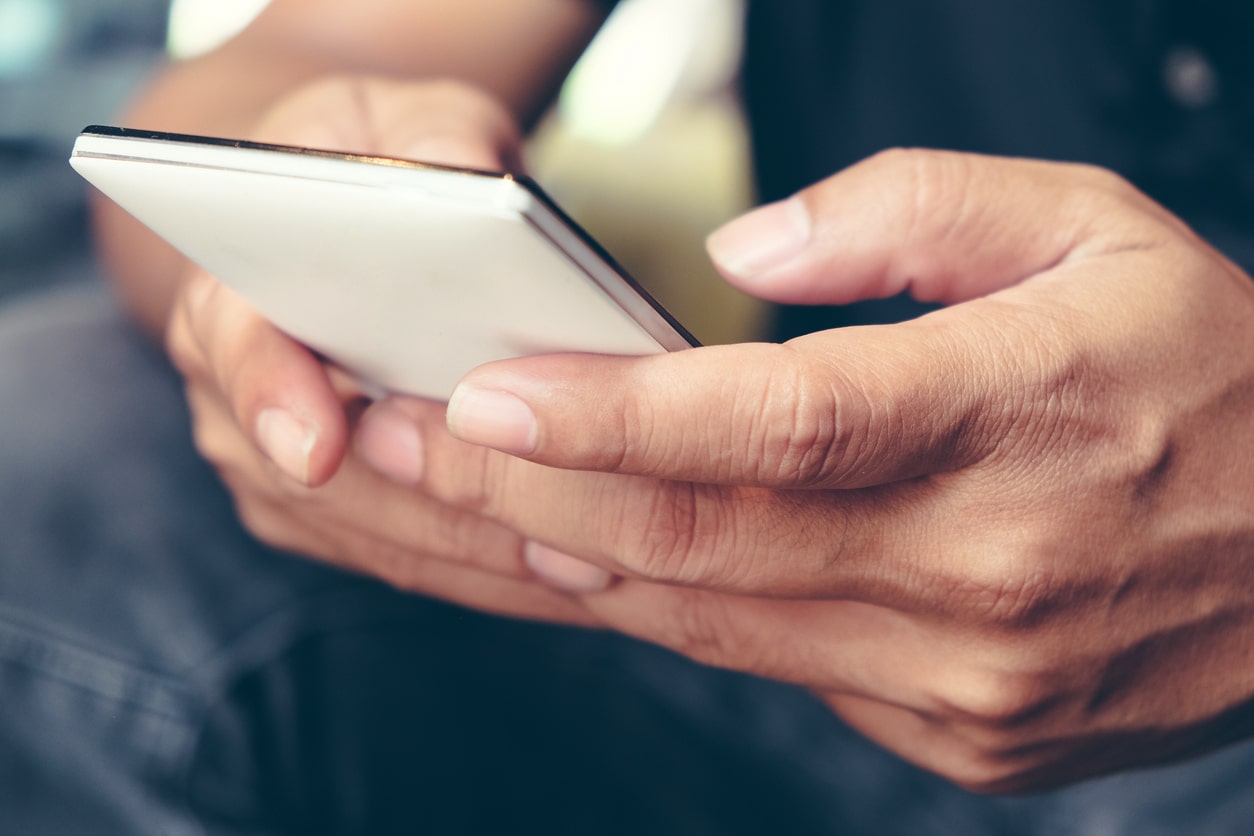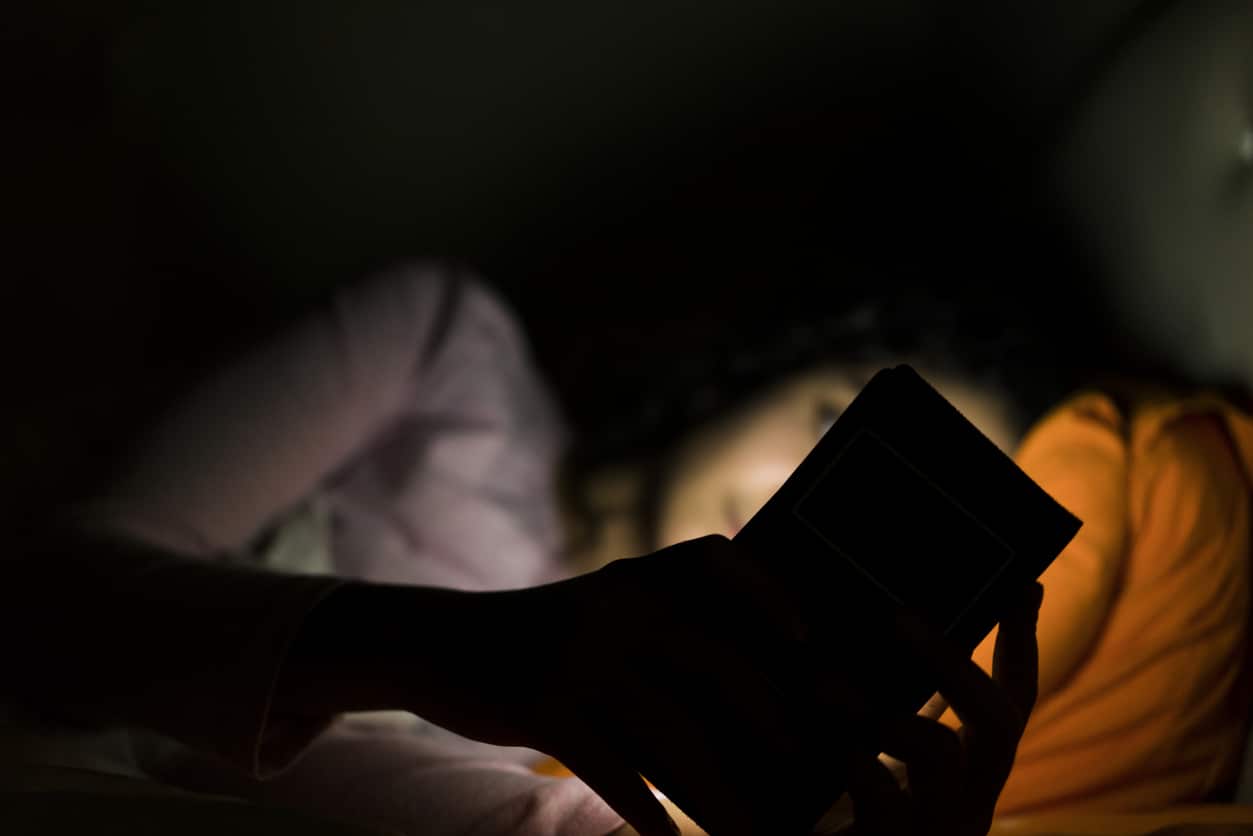What is sexting?
If you decide to send a sext it is important to understand what could happen after

For some people, sexting can be relatively incident-free and your messages will only be seen by the person you initially planned would see them. But there are also cases where an image or message which you share and intend to be private is then shown to or shared with other people.
There is only so much you can do to protect yourself from a naked picture or video of you getting into the wrong hands. Other than not sending one at all, there is no guarantee you can prevent it from being shared with a wider audience than you initially intended.
In this section
- What is sexting?
- Why do people sext?
- Things to consider before sexting someone
- Sexting and the law
- What you should do if you get sent a nude going viral?
- How to protect yourself when sexting
- What to do if a nude goes viral

What is sexting?
Sexting means sending messages, images and videos of a sexual nature. This includes photos in which people are naked or of genitalia as well as messages which talk about performing sexual acts.
Sexting can be with a partner, a friend or an acquaintance/stranger on a dating app.
Why do people sext?
For some people, sending or receiving sexts can be a turn-on or a way to feel intimate with another person.
You may feel that sending a sext will make someone like you more. But remember, if someone is worth your while, they will like you whether you send them sexts or not.
Maybe you are both aroused and far away from each other and therefore decide it’s the only option available to you at that moment in time. You might be using a dating app like Tinder, Grindr or Blendr and the person you’re sending a nude to is someone you’ve never met or chatted to before.
Dealing with pressure to sext
Remember, you don’t have to do it if you don’t want to, and should never feel pressured into it. No matter how much you like the other person or how much pressure they put on you. If they respect you, they will completely understand, and if they don’t understand, it is even more of a reason not to share one with them.
If you’re in a situation that makes you uncomfortable and the other person keeps asking you for sexts, don’t be afraid to block them. Find out what to if someone sends you an unwanted sext.

Things to consider before sexting someone
If your partner or someone you’re talking to has suggested you start sexting, or if it’s something you want to suggest yourself, take some time to think about it before you do it.
Here are some questions to ask yourself:
- Do you feel confident and secure in sending a sext?
- How would you feel if a naked image of you were to appear on social media?
- Do you trust the person you’re sexting?
- Will this person be comfortable with receiving a sext?
Here are some other things to consider before deciding to start sexting someone:
- Images can be saved and screenshot, even if they’re meant to disappear, like on Snapchat
- Even if you trust the person now, if you were to fall out or break up for any reason in the future, your image could appear online
- Video calls and skype sessions could be recorded without your knowledge
- Some people have been blackmailed using their nudes or sexts, which means threatening to send your pictures to your friends and family or post them online if you don’t do what they say
Sexting and the law
Since 9 February 2021, new laws apply to the sharing of “intimate images” without the consent of the person in the images. If a person records, distribute or publishes intimate images of someone without their permission, they have broken the law.
Intimate images include any photo or video of:
- Someone’s genitals, breasts, bum or anal region
- The underwear covering these parts of the body
- A naked person
- A person engaged in any form of sexual activity
Depending on a person’s intent when sharing the images, they can face a maximum prison sentence of up to 7 years.
Remember, if you are under 18, a sexual image of you will be considered child exploitation material. This means that you and the person you send it to could be in some very serious trouble.
Having a sexual picture or video of someone under 18 years of age, and sending that picture to other people, is illegal and can lead to criminal prosecution. Penalties can include jail time, a fine, and being added to the sex offenders register for at least two and a half years.
What you should do if you get sent a nude going viral?
If you are sent a picture or video of someone under 18 that is being sent around on social media or online, delete the image from your device immediately, and never share it with another person. Report the person who sent it to you to the social media platform, and if you want to take the matter further, you can report it to the Gardaí.
Think about how the person whose image is being shared is feeling knowing that an intimate picture or video of them has been seen by so many people. If you were sent the image by a friend or someone you know, inform them that it’s illegal and they can be prosecuted for having it and for sharing it. If you know the person in the image, consider reaching out and asking if they’re okay. and if they need support in dealing with the situation.

How to protect yourself when sexting
If you have decided you want to start sexting someone, here’s what you can do to protect yourself, but remember – anything can happen with images you share online, even if you trust the person you’re sending them to.
Only share with people you trust
If you’re considering sending something to someone you don’t know that well or have never met in real life, it is best not to send the image. There are no guarantees that they will keep it to themselves. Remember, even the people we trust the most, like a partner or close friend, can sometimes betray that trust. Think about what could happen if you fall out or break up.
Avoid showing your face
Try to avoid showing your face in any images or videos you share. If you are on a video call or skype session, move the camera down so that your face is not in view. Should anything happen to these images in the future, it is best that your face is not in view so that you can’t be identified.
Use a secure messaging app
If a messaging system gets hacked, there’s a risk the hacker could access your images and then share them online or try to blackmail you. To avoid this happening, use a secure encrypted messaging app. WhatsApp uses end-to-end encryption, making it secure.
Agree on some ground rules
Talk to the person that you’re planning on sexting and ask if you can agree on some ground rules. Discuss how you’ll send the images, where they’ll be saved, and what will happen to them. The best arrangement is probably to make an agreement that you will both delete the images or texts after you’ve viewed them.
Avoid sharing personal information
It’s best to only send sexts to people you know and trust. If you are sexting someone you don’t know too well, avoid sharing too much personal information about yourself with them, such as where you live. If they’re making you uncomfortable block them and report them to the platform if they have done anything to break their guidelines.
Agree to delete images if you break up
If you break up with someone and you both have images, videos, or texts on your devices of the other person, arrange a time to meet up and delete these images from your devices. Allowing each of you to check the other person’s folders to make sure they’re gone can give some reassurance.

What to do if your nudes end up online
If an image of yourself ends up online, it can be very distressing. Know that you are not alone in this situation, and things will get better. Here are the steps you can take:
Talk to someone
Although this can be an upsetting time try not to panic. Tell someone you trust – you may feel embarrassed but talking to a parent, friend or trusted adult will help as they can offer support and advice. If an image of you is being shared at a college or school, report it to someone in charge who will be able to help.
Untag yourself
If you are tagged in any images, untag yourself and then report the image to the social media platform so that it can be taken down. You can also contact Google to remove the images from the search results. If you want, you can deactivate your social media accounts until this blows over. It is also possible to just suspend the account for a period of time if you don’t want to permanently delete it.
Taking legal action
Contact a legal professional to engage their assistance in removing it and demanding the person who shared it to surrender all copies they possess. Under Data Protection and copyright law, you have the legal right to have these images taken off the internet.
Dealing with your emotions
This is a very stressful time, so it’s important you take care of yourself. Try not to be too hard on yourself – everyone makes mistakes, and you are not the first person who has been through something like this. Consider seeing a counsellor to talk about how you’re feeling, and reach out to friends and family to ask for their support.
Remember: The age of sexual consent in Ireland is 17. If you’re over 16, you can consent to medical treatment including any treatment or tests needed.
Need more information?
We are here to answer your questions and talk through your options. Our online chat service is for 16 to 25 year olds and is available Monday to Friday, 4pm to 8pm. Chat to us now about your situation.
- Chat now to a trained Youth Information Officer
- Or leave us a message and we will email you back





